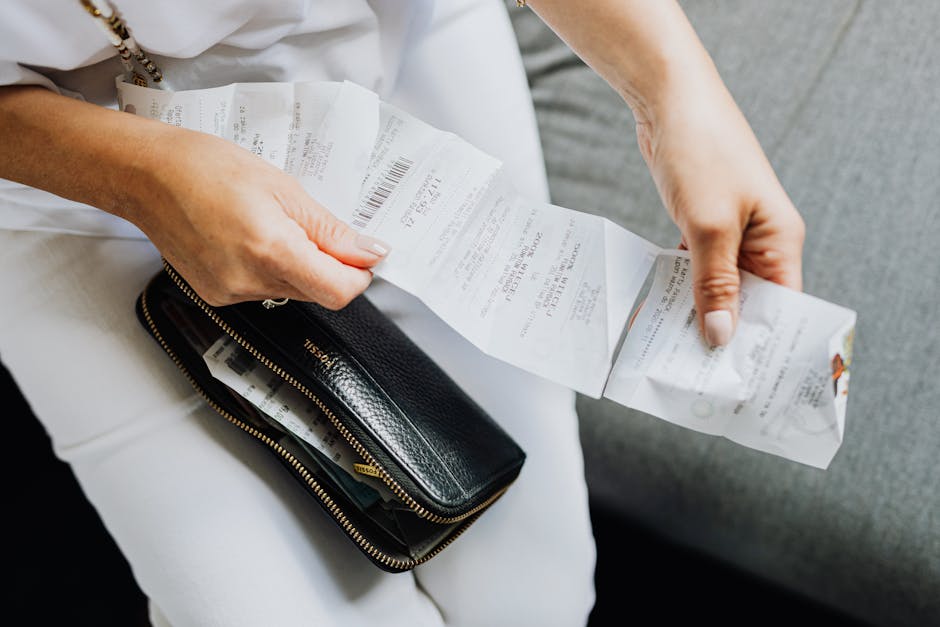The Importance of Budgeting for Shopping
Shopping is an activity that many of us engage in regularly, whether it’s for groceries, clothing, electronics, or other essentials and luxuries. However, without proper planning and budgeting, shopping can quickly become a source of financial stress and strain. In this article, we will delve into the crucial topic of budgeting for shopping, exploring why it is essential, how it can benefit individuals and families, and practical tips for effective budgeting.
Understanding the Basics of Budgeting

At its core, budgeting is the process of creating a plan for how you will spend your money. It involves taking into account your income, expenses, and financial goals to ensure that you are living within your means and making wise financial decisions. While budgeting is important for all aspects of life, it is particularly crucial when it comes to shopping.
When you set a budget for shopping, you establish limits on how much you can spend on certain items or categories. This helps prevent impulse purchases, overspending, and accumulating debt. By having a clear budget in place, you can make informed decisions about what you buy, prioritize your spending, and avoid financial pitfalls.
The Benefits of Budgeting for Shopping

There are numerous benefits to budgeting for shopping, both in the short term and the long term. Let’s explore some of the key advantages:
1. Financial Discipline
One of the primary benefits of budgeting for shopping is the development of financial discipline. When you have a budget in place, you are forced to think carefully about your spending habits and make conscious choices about where your money goes. This can help curb impulsive buying behavior and promote responsible financial management.
Without a budget, it’s easy to overspend and lose track of your expenses, leading to financial instability and stress. By setting limits and sticking to them, you can avoid unnecessary purchases, save money, and build a strong foundation for your financial future.
2. Goal Setting
Another advantage of budgeting for shopping is that it allows you to set and work towards specific financial goals. Whether you’re saving for a vacation, a new car, or a down payment on a house, having a budget in place can help you allocate funds towards your goals and track your progress over time.
By aligning your shopping habits with your financial objectives, you can make more strategic purchasing decisions and prioritize what is truly important to you. This can provide a sense of purpose and motivation, making it easier to resist temptation and stay on track with your financial aspirations.
3. Stress Reduction
Financial stress is a common concern for many individuals and families, and overspending on shopping can exacerbate this anxiety. By budgeting for shopping, you can proactively manage your finances, reduce uncertainty, and alleviate stress related to money matters.
Knowing exactly how much you have available to spend on shopping each month can give you peace of mind and confidence in your financial decisions. It can also help you avoid the guilt and regret that often accompany impulsive purchases and overspending, leading to a healthier relationship with money.
Practical Tips for Effective Budgeting

Now that we’ve explored the importance and benefits of budgeting for shopping, let’s discuss some practical tips for creating and sticking to a shopping budget:
1. Calculate Your Income and Expenses
Start by calculating your monthly income and fixed expenses, such as rent, utilities, and debt payments. Subtract these expenses from your income to determine how much discretionary income you have available for shopping and other non-essential purchases.
2. Set Clear Spending Limits
Once you have a clear picture of your finances, set specific spending limits for different categories of shopping, such as groceries, clothing, entertainment, and miscellaneous expenses. Be realistic about what you can afford and adjust your budget as needed to accommodate unexpected costs or changes in income.
3. Track Your Spending
Keep track of your shopping expenses by saving receipts, using budgeting apps, or creating a spreadsheet to monitor your purchases. This will help you stay accountable to your budget, identify areas where you may be overspending, and make adjustments as needed to stay on track.
4. Avoid Impulse Purchases
Impulse purchases can quickly derail your budget and lead to overspending. Before making a purchase, take a moment to consider whether it aligns with your budget and financial goals. If it’s not a planned expense, give yourself time to think it over before committing to buy.
5. Look for Ways to Save
There are many ways to stretch your shopping budget and save money on purchases. Consider buying items on sale, using coupons or discount codes, shopping at thrift stores or resale shops, and comparing prices online before making a purchase. By being a savvy shopper, you can make your budget go further and maximize your buying power.
Expert Opinions

We reached out to financial experts for their insights on the importance of budgeting for shopping:
“Budgeting for shopping is a crucial aspect of overall financial planning,” says Sarah Peters, a certified financial planner. “By setting clear spending limits and tracking your expenses, you can avoid unnecessary debt and make smarter choices with your money.”
According to John Smith, a personal finance expert, “Budgeting for shopping can help individuals identify their spending patterns, prioritize their expenses, and achieve their financial goals. It’s a powerful tool for taking control of your finances and building a secure future.”
Conclusion
In conclusion, budgeting for shopping is a fundamental component of responsible financial management. By creating a budget, setting spending limits, tracking expenses, and avoiding impulse purchases, individuals and families can gain control over their finances, reduce stress, and work towards their financial goals.
Whether you’re saving for a big purchase, planning for the future, or simply trying to make ends meet, budgeting for shopping can help you make the most of your money and live a more financially secure life. By following the practical tips outlined in this article and seeking expert advice when needed, you can set yourself up for success and enjoy the benefits of smart shopping budgeting.




